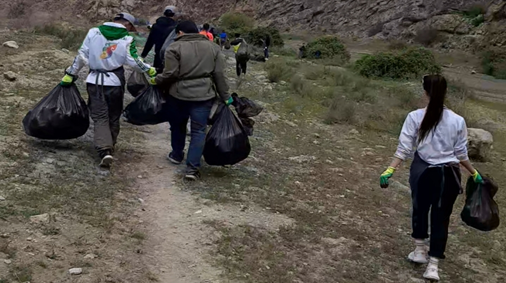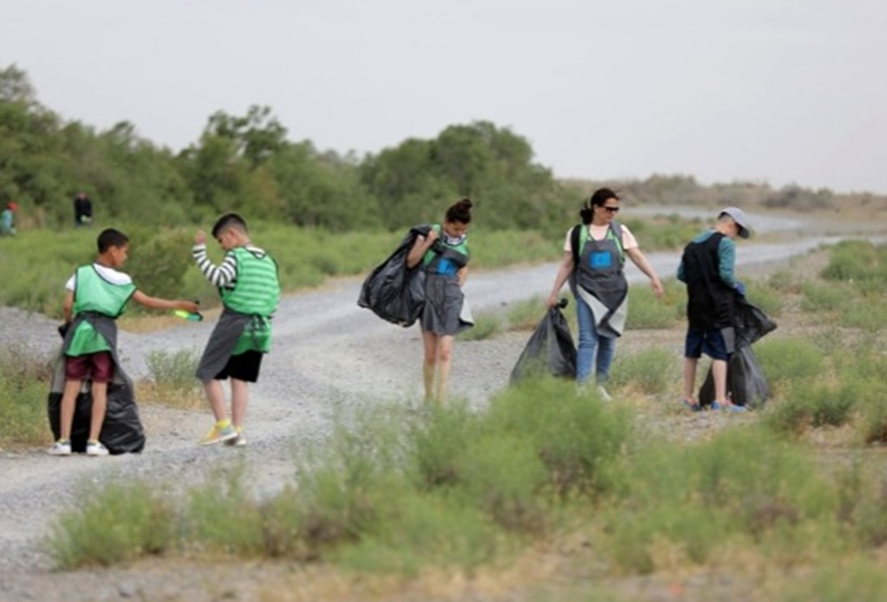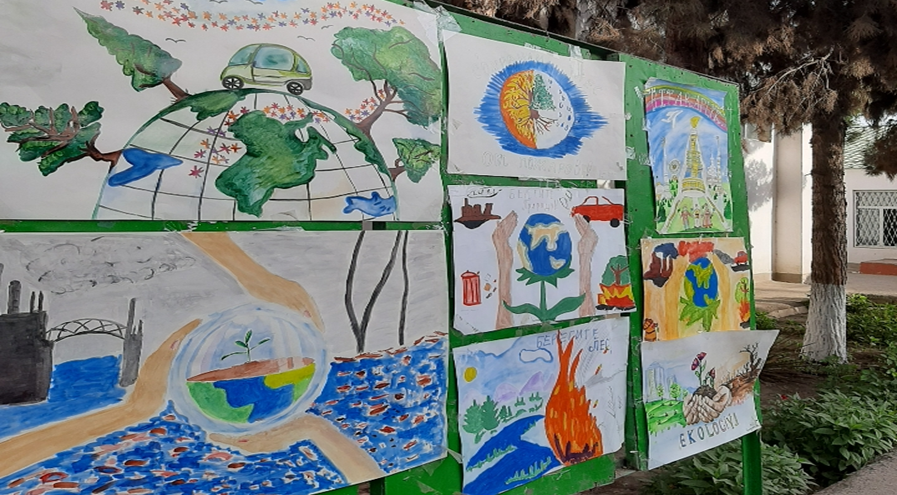Uzbekistan Chapter
salom va xush kelibsiz! This is the Uzbekistan chapter of Education4Earth, we are located primarily in the capital, Tashkent, and we focus on issues that are very similar to that of the Turkmenistan and Kazakhstan chapter-- plastics pollution and desertification.

Environmental Education Program
In this part of the chapter, we hone in on biology, chemistry, computer science, and math. In biology, we cover the foundational topics-- cell structure, function, and a little anatomy-- but we also focus on evolution and adaptation. Understanding ecological history is very important to learning how animals have and continue to adapt to a changing earth. This is relevant to the current issues we face here in Uzbekistan-- what will happen to animals and plants in the Aral and Caspian Seas?
Computer science can be applied in almost every field to learn more about it and do more with that information. That’s what we hope to do by educating people in computer science (taught by US members). By laying the groundwork in java, python, and matlab, we hope to give students the ability in the future to be able to use computer models, which plays a huge role in climate science, as a tool to better understand earth’s complicated atmosphere. We currently have 39 members and 90 students.

Long-Term Projects
These projects are largely in collaboration with the Turkmenistan and Kazakhstan chapters, but we have also done some of our initiatives. For instance, our five member and student led cleanups have been a large part of our “Clean Tashkant” project, where we’ve also used different forms of social media campaigning, such as posting pictures on Pinterest and Facebook to engage in different demographics. We’ve also given out reusable water bottles to combat the excessive use of plastic water bottles that has greatly contributed to the plastic pollution problems.
We are also currently working with friends from the Turkmenistan and Uzbekistan chapters on the “ReMade” Vlog project and the water management research project (which we are currently looking to collaborate with the UNDP for).
